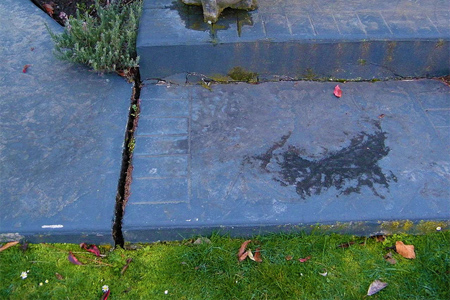Skunk sprays usually happen just outside one’s home, after the family dog attempts to chase down this nocturnal creature. When a skunk’s spray is unfortunate enough to encounter the porous surface of a cement slab within the front or backyard, it can become a challenging endeavor treat and remove.
Yet, there remain a handful of household ingredient that can go a long ways to introducing freshness back within the cement slab. By following the below solutions, you can be sure that your concrete within your backyard will be free of any skunk related odor.
Skunk Smell Removal Methods for Concrete
1 Bleach It Out
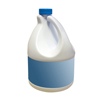 The chemical compound within bleach works well at cutting through the odorous oils within skunk spray. Mix one part bleach with eight parts water within a large 1-5 gallon tub. Proceed to pour the contents over the areas of concrete affected by the skunk spray and allow for it to sit for 5-10 minutes. Once the mixture has soaked in, proceed to spray down the concrete surface with a hose to ensure that all of the bleach related chemicals are removed from the porous surface. You can finalize this process by spraying down the surface of the concrete with a deodorizing spray of white vinegar and water mixed in equal parts within a spray bottle. As a note of precaution, bleach may cause some bleaching of colored concrete. If your colored concrete has been sprayed, it is recommend that you use one of the alternative deodorizing methods outlined below.
The chemical compound within bleach works well at cutting through the odorous oils within skunk spray. Mix one part bleach with eight parts water within a large 1-5 gallon tub. Proceed to pour the contents over the areas of concrete affected by the skunk spray and allow for it to sit for 5-10 minutes. Once the mixture has soaked in, proceed to spray down the concrete surface with a hose to ensure that all of the bleach related chemicals are removed from the porous surface. You can finalize this process by spraying down the surface of the concrete with a deodorizing spray of white vinegar and water mixed in equal parts within a spray bottle. As a note of precaution, bleach may cause some bleaching of colored concrete. If your colored concrete has been sprayed, it is recommend that you use one of the alternative deodorizing methods outlined below.
2 Use the Traditional DeSkunking Concoction
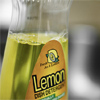 This deskunking concoction works by combining several household deodorizers to ensure that the skunk oil has no chance of surviving. Begin by mixing one quart of 3% hydrogen peroxide, 1/4 cup of baking soda and one teaspoon of dish detergent within a container and add two gallons of water. Proceed to pour this foaming mixture over the surface of the concrete making sure that area affected area of the concrete is left untouched. After the solution has had 15 minutes to settle in, spray the surface down with a hose to remove all of the chemicals from the concrete. As a note of precaution, the hydrogen peroxide within this solution can potential have some bleaching effects and this solution is not recommended on colored slabs of concrete.
This deskunking concoction works by combining several household deodorizers to ensure that the skunk oil has no chance of surviving. Begin by mixing one quart of 3% hydrogen peroxide, 1/4 cup of baking soda and one teaspoon of dish detergent within a container and add two gallons of water. Proceed to pour this foaming mixture over the surface of the concrete making sure that area affected area of the concrete is left untouched. After the solution has had 15 minutes to settle in, spray the surface down with a hose to remove all of the chemicals from the concrete. As a note of precaution, the hydrogen peroxide within this solution can potential have some bleaching effects and this solution is not recommended on colored slabs of concrete.
3 Drown it in White Vinegar
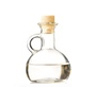 This household acid can have a powerful effect in lifting difficult skunk spray odors out of concrete. Mix a solution of one part white vinegar with five parts water within a 1-5 gallon container. Proceed to pour the contents over the affect locations within the concrete and provide a minim of an hour for the compound to soak in. After this time has passed, remove as much of the kitchen compound as possible by spraying at a 45 degree angle to remove the vinegar from the concrete. The next sunny day will work to dry out the surface and ensure that any remaining scent of white vinegar is lifted off.
This household acid can have a powerful effect in lifting difficult skunk spray odors out of concrete. Mix a solution of one part white vinegar with five parts water within a 1-5 gallon container. Proceed to pour the contents over the affect locations within the concrete and provide a minim of an hour for the compound to soak in. After this time has passed, remove as much of the kitchen compound as possible by spraying at a 45 degree angle to remove the vinegar from the concrete. The next sunny day will work to dry out the surface and ensure that any remaining scent of white vinegar is lifted off.
4 Deodorize with Enzyme Cleaner
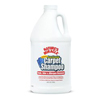 If you can get your hands on a gallon of enzyme cleaner, it will work to literally eat through odorous skunk spray oil within the concrete flooring. Mix the enzyme cleaner and water in equal parts and pour over the affected area of the concrete at dusk. Allow for the active enzymes within that solution to work their magic over night and the next day until the solution completely evaporates from the concrete.
If you can get your hands on a gallon of enzyme cleaner, it will work to literally eat through odorous skunk spray oil within the concrete flooring. Mix the enzyme cleaner and water in equal parts and pour over the affected area of the concrete at dusk. Allow for the active enzymes within that solution to work their magic over night and the next day until the solution completely evaporates from the concrete.
5 Pour Hydrogen Peroxide
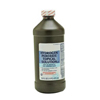 If you do not have the makings to create a deskunking concoction, then using hydrogen peroxide by itself can do much to neutralize difficult skunk odors within concrete. Mix a solution one one part hydrogen peroxide with five parts water within a large container, and proceed to pour the contents over the locations of the concrete affected by skunk spray oil. Allow 30 minutes for this solution to soak in before spraying the chemical off with a garden hose. Similar to bleach, this solution is can have some bleaching effects and is not recommended for colored concrete slabs.
If you do not have the makings to create a deskunking concoction, then using hydrogen peroxide by itself can do much to neutralize difficult skunk odors within concrete. Mix a solution one one part hydrogen peroxide with five parts water within a large container, and proceed to pour the contents over the locations of the concrete affected by skunk spray oil. Allow 30 minutes for this solution to soak in before spraying the chemical off with a garden hose. Similar to bleach, this solution is can have some bleaching effects and is not recommended for colored concrete slabs.
6 Sprinkle Baking Soda
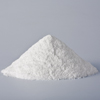 Similar to white vinegar, baking soda can be used by itself if all the ingredients for a deskunking concoction are not at hand. Begin by spraying down the affected concrete with a hose and proceed to sprinkle baking soda in heavy quantities over the entire slab of concrete. After applying baking soda to the entire area, allow for it to settle into the concrete for 24-48 hours. After 1-2 days have passed, you can return to spray the remaining powder from the concrete slab.
Similar to white vinegar, baking soda can be used by itself if all the ingredients for a deskunking concoction are not at hand. Begin by spraying down the affected concrete with a hose and proceed to sprinkle baking soda in heavy quantities over the entire slab of concrete. After applying baking soda to the entire area, allow for it to settle into the concrete for 24-48 hours. After 1-2 days have passed, you can return to spray the remaining powder from the concrete slab.
7 Seal Smell Within Concrete
 If the skunk spray is proving impossible to remove from the porous concrete, you may want to consider sealing the stench within the concrete. By purchasing and applying concrete sealer on the outdoor slab, you can be sure that the odor will become a thing of the past. As a note of precaution, sealing concrete is permanent and requires some know-how, so be sure to do your research before applying to your effected concrete slab.
If the skunk spray is proving impossible to remove from the porous concrete, you may want to consider sealing the stench within the concrete. By purchasing and applying concrete sealer on the outdoor slab, you can be sure that the odor will become a thing of the past. As a note of precaution, sealing concrete is permanent and requires some know-how, so be sure to do your research before applying to your effected concrete slab.
Skunk Smell Prevention
1 Motion Censor Lights
 Using motion censor lights will have the effect of making sure that skunks keep a distance from your outdoor patios. When skunks get too close, the flood lights with turn on and will naturally scare the skunks away from the locations near your home. If you are to try this preventative tip, make sure that you place lights in locations to ensure that the patio is fully lit. As well, ensure that the lights are not so powerful as to provoke the wrath of the skunks spray as a perceived threat.
Using motion censor lights will have the effect of making sure that skunks keep a distance from your outdoor patios. When skunks get too close, the flood lights with turn on and will naturally scare the skunks away from the locations near your home. If you are to try this preventative tip, make sure that you place lights in locations to ensure that the patio is fully lit. As well, ensure that the lights are not so powerful as to provoke the wrath of the skunks spray as a perceived threat.
2 Seal Concrete Up
 Using a concrete sealer will be effective at closing up the porous and absorbent surface that exists within most concrete surfaces. This product can often be purchased at a home supply store and can be applied by most home owners with some experience in DIY home improvement. After this has been applied, it will be much easier to lift off skunk spray oil and residues as they will remain within the surface area and will be ready to be lifted off.
Using a concrete sealer will be effective at closing up the porous and absorbent surface that exists within most concrete surfaces. This product can often be purchased at a home supply store and can be applied by most home owners with some experience in DIY home improvement. After this has been applied, it will be much easier to lift off skunk spray oil and residues as they will remain within the surface area and will be ready to be lifted off.
[contact]
